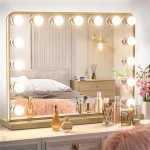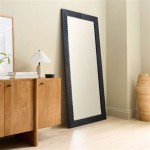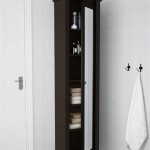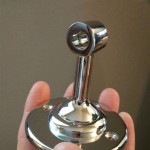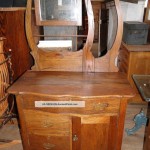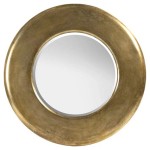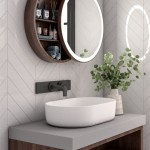Kids Room Mirrors: Reflecting Style and Functionality
Mirrors in children's rooms serve a dual purpose. They are not only decorative elements that enhance the overall aesthetic but also practical tools that aid in development and foster a sense of self. Selecting the right mirror involves considering various factors, including safety, size, shape, and the overall room design.
Safety First: Choosing the Right Mirror for a Child's Room
Safety should be the paramount concern when choosing any item for a child's room, and mirrors are no exception. Opt for mirrors made from shatterproof acrylic or other safety-backed materials. These materials minimize the risk of sharp shards in case of accidental breakage. Securely mounting the mirror to the wall is crucial to prevent it from falling and causing injury. Avoid placing heavy mirrors on dressers or other furniture where they could be easily pulled down.
Size and Shape: Finding the Perfect Fit
The size and shape of the mirror should complement the room's dimensions and the child's age. A full-length mirror can be practical for older children to check their outfits, while smaller, decorative mirrors might be more suitable for younger children. Consider the available wall space and the existing furniture arrangement when determining the appropriate size. Shapes can range from classic rectangles and ovals to more playful designs like clouds, stars, or animals, adding a touch of whimsy to the room.
Placement and Positioning: Maximizing Functionality and Style
Strategic placement enhances the mirror's functionality and contributes to the room's overall design. Placing a full-length mirror near the closet or dresser allows children to easily see their outfits. Smaller mirrors can be hung at a child's eye level to encourage self-discovery and play. Consider the natural light sources in the room and position the mirror to maximize reflectivity and brighten the space.
Material and Frame: Enhancing the Room's Aesthetic
The mirror's frame and material significantly impact the room's aesthetic. Wooden frames offer a classic and timeless appeal, while metal frames provide a more modern touch. Frames can be painted in vibrant colors to add a pop of personality or chosen in neutral tones to blend seamlessly with the existing décor. Consider the overall style of the room and choose a mirror that complements the existing furniture and color scheme.
Beyond Reflection: Mirrors as Developmental Tools
Mirrors are not merely decorative objects; they play a crucial role in a child's development. For infants, mirrors provide a source of fascination and help them develop self-awareness. As children grow older, mirrors aid in developing motor skills, coordination, and body image. Playing dress-up in front of a mirror can encourage creativity and imaginative play.
Creating a Theme: Mirrors as Design Elements
Mirrors can be incorporated into a themed room to enhance the overall design. For a princess-themed room, an ornate, gilded mirror can add a touch of royalty. In a space-themed room, a star-shaped mirror can contribute to the celestial ambiance. Consider the room's theme and select a mirror that complements the chosen motif.
Maintenance and Care: Ensuring Longevity
Proper maintenance ensures the mirror's longevity and preserves its appearance. Regularly cleaning the mirror with a gentle glass cleaner prevents streaks and smudges. Teach children how to safely handle and care for the mirror to avoid accidental damage. Inspect the mirror regularly for any signs of wear and tear and address any issues promptly to prevent further damage.
Budget-Friendly Options: Decorating without Breaking the Bank
Creating a stylish and functional space doesn't require a significant financial investment. Affordable mirrors are available in various shapes, sizes, and styles. Repurposing existing mirrors by adding a fresh coat of paint or embellishments can be a cost-effective way to personalize the room. Exploring thrift stores and online marketplaces can also yield unique and budget-friendly finds.
DIY Projects: Adding a Personal Touch
Engaging in do-it-yourself projects can add a personal touch to a child's room. Creating a custom frame for a plain mirror or decorating a mirror with stickers or paints can be a fun and creative activity for both parents and children. These projects not only personalize the space but also provide an opportunity for children to express their creativity and develop their crafting skills.

Mirror In A Child S Room Good Or Bad Idea

Magical Mirror With Tv 22 Circu Furniture

5 Mirrors To Style Your Kids Bedroom Design

Bunny Floor Mirror Circu Magical Furniture

5 Incredibly Unique Wall Mirrors To Place In The Bedroom Of Your Child

Small Kids Mirror Nursery Montessori Decorative Pink Wooden Baby Floor For Room Décor Gift

Cloud Mirror Circu Magical Furniture

6 Brilliant Feng Shui Tips For Kids Rooms

5 Incredibly Unique Wall Mirrors To Place In The Bedroom Of Your Child

Abc Kids Mirror Pottery Barn

